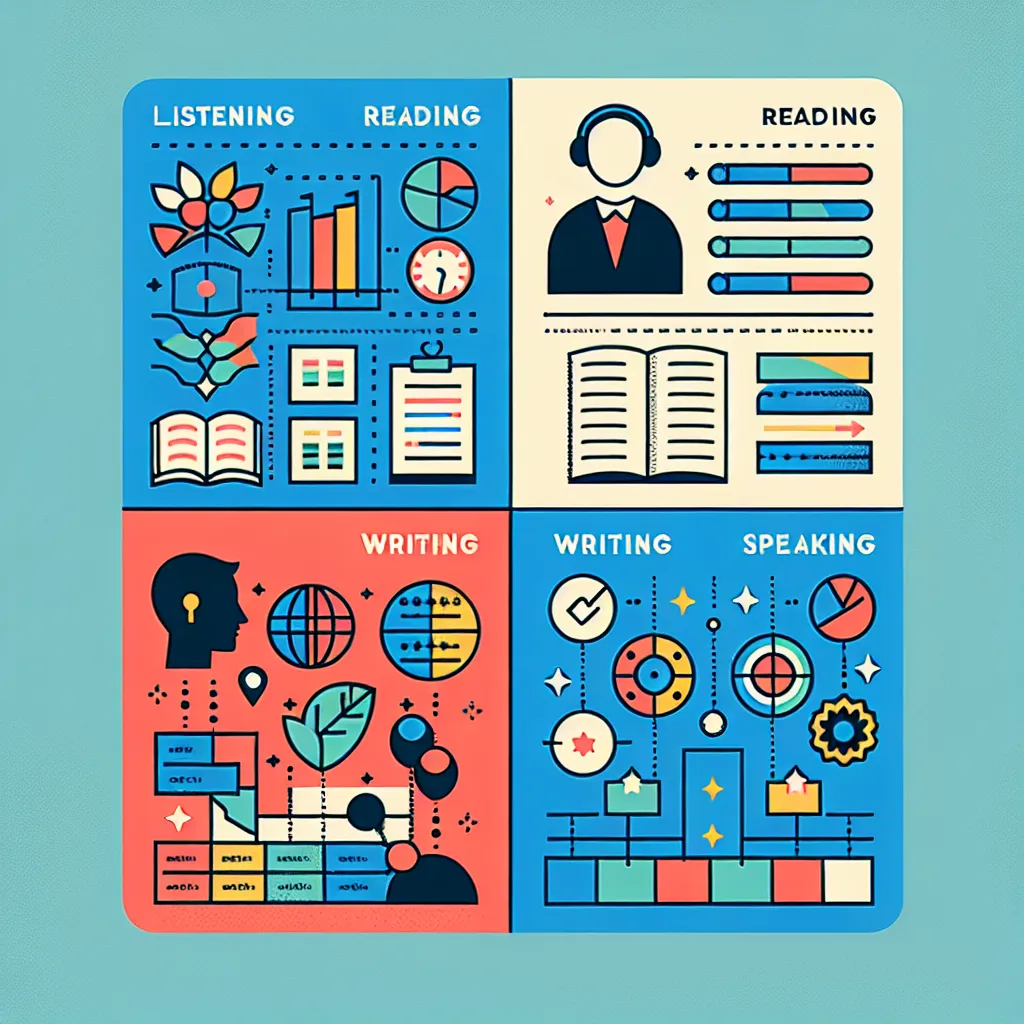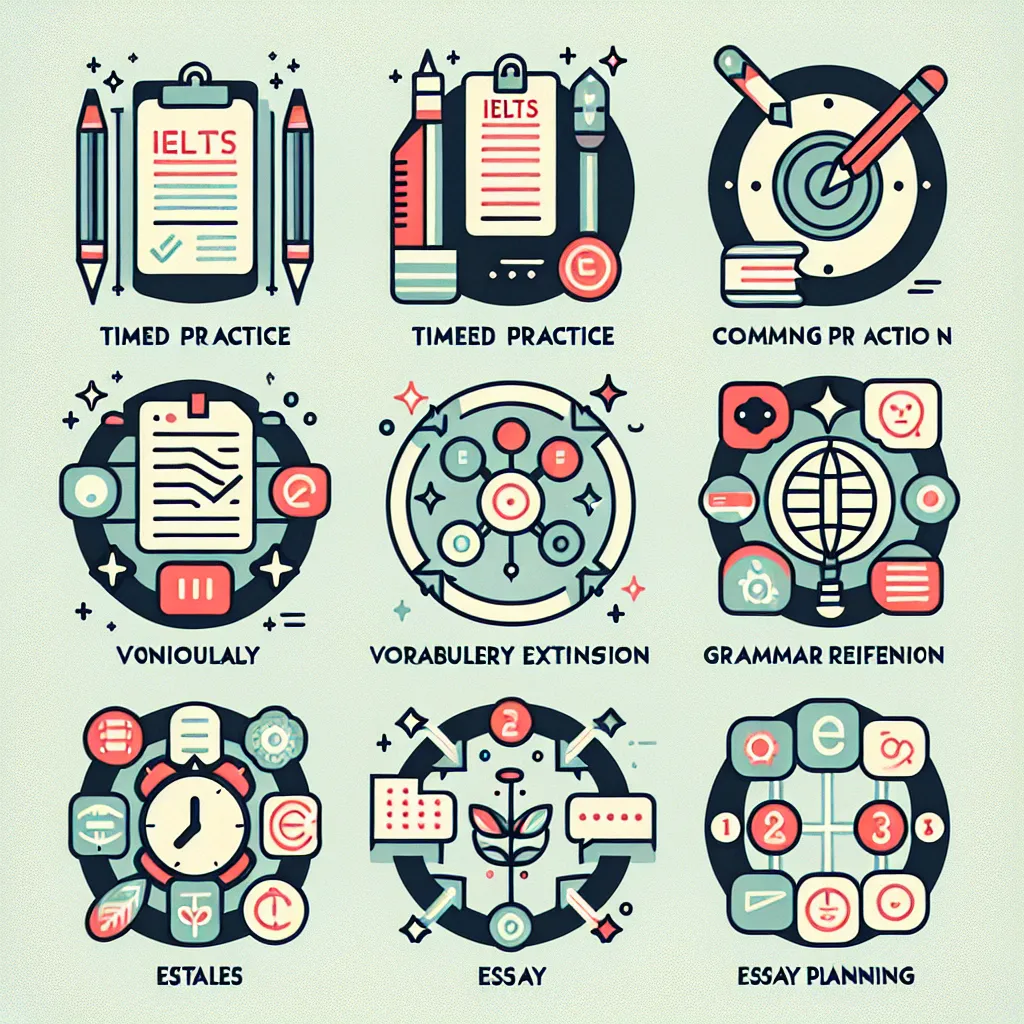For many IELTS test-takers, determining which section of the exam presents the greatest challenge can be a daunting task. Each component of the IELTS test – Listening, Reading, Writing, and Speaking – comes with its own set of unique challenges. In this comprehensive guide, we’ll explore the various sections of the IELTS test and identify which one is generally considered the most difficult, along with strategies to overcome these challenges.
Understanding the IELTS Test Structure
Before diving into the most challenging section, it’s crucial to understand the structure of the IELTS test. The exam consists of four main components:
- Listening (30 minutes)
- Reading (60 minutes)
- Writing (60 minutes)
- Speaking (11-14 minutes)
Each section tests different language skills and presents unique challenges to test-takers.
 IELTS Test Sections
IELTS Test Sections
The Most Challenging Section: Writing
While difficulty levels can vary depending on individual strengths and weaknesses, the Writing section is widely considered the most challenging part of the IELTS test. Here’s why:
Time Pressure and Task Complexity
The Writing section requires test-takers to complete two tasks in just 60 minutes:
- Task 1 (20 minutes): Describe visual information (graph, table, chart, or diagram)
- Task 2 (40 minutes): Write an essay in response to a point of view, argument, or problem
The time constraints, coupled with the complexity of the tasks, make this section particularly demanding.
High Language Proficiency Requirements
Writing tasks demand a high level of language proficiency, including:
- Extensive vocabulary
- Strong grammar skills
- Ability to organize ideas coherently
- Clear and concise expression of complex thoughts
Strict Scoring Criteria
The IELTS Writing section is evaluated based on four criteria:
- Task Achievement/Response
- Coherence and Cohesion
- Lexical Resource
- Grammatical Range and Accuracy
Meeting all these criteria within the given time frame can be extremely challenging.
Strategies to Improve Your IELTS Writing Skills
To overcome the challenges of the Writing section, consider the following strategies:
1. Practice Timed Writing Regularly
Set aside time each day to practice writing under timed conditions. This will help you improve your speed and efficiency.
2. Familiarize Yourself with Different Question Types
Study various types of Task 1 and Task 2 questions to understand what’s expected in each scenario.
3. Expand Your Vocabulary
Learn new words and phrases relevant to common IELTS topics. Focus on using them accurately in context.
4. Improve Your Grammar
Review and practice using a wide range of grammatical structures, paying special attention to common IELTS grammar points.
5. Learn to Plan Your Essays Quickly
Develop a method for quickly outlining your essays before you start writing. This will help you organize your thoughts more effectively.
 IELTS Writing Strategies
IELTS Writing Strategies
Challenges in Other IELTS Sections
While Writing is often considered the most difficult, other sections present their own unique challenges:
Listening
- Fast-paced audio recordings
- Various accents and speaking styles
- One-time playback
Reading
- Time management for three long passages
- Complex vocabulary and academic texts
- Tricky question types (e.g., True/False/Not Given)
Speaking
- Nervousness and anxiety
- Thinking on your feet
- Maintaining fluency and coherence
Tips for Overall IELTS Success
To excel in all sections of the IELTS test, consider these general tips:
- Develop a consistent study routine
- Use authentic IELTS materials for practice
- Focus on improving your overall English proficiency
- Take practice tests under exam conditions
- Seek feedback from experienced IELTS tutors or native English speakers
Conclusion
While the Writing section is often deemed the most challenging part of the IELTS test, it’s important to remember that difficulty can vary from person to person. By understanding the unique challenges of each section and implementing targeted strategies, you can improve your performance across all aspects of the IELTS test. Remember, consistent practice and a well-rounded approach to English language learning are key to achieving your desired IELTS score.
Are you preparing for the IELTS test? Which section do you find most challenging? Share your experiences and questions in the comments below, and don’t forget to check out our other articles on IELTS preparation for more valuable tips and strategies.




